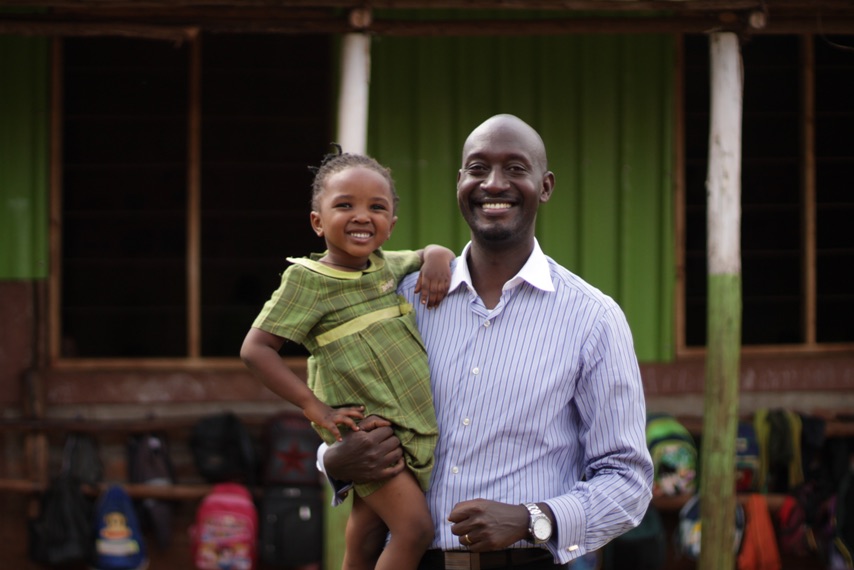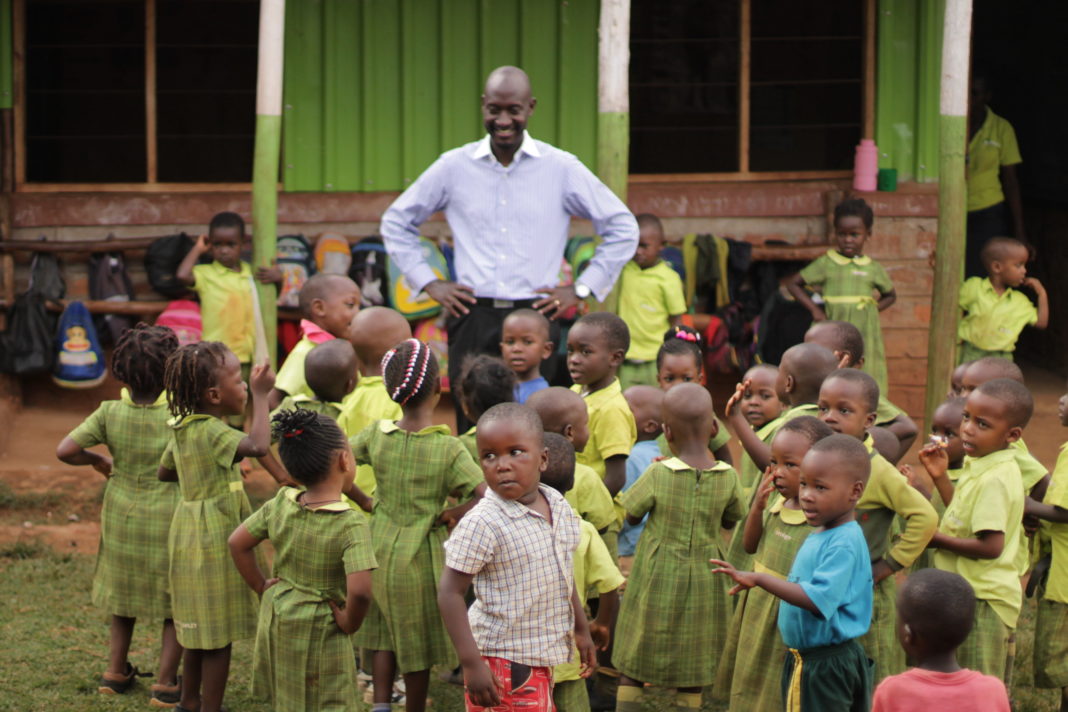Mr Morrison Rwakakamba has been an advocate of social change in Uganda, and is one of those who would want government to implement better policies that can deliver the country to the middle income status as outlined in Vision 2020, and also enable it achieve Sustainable Development Goals (SDGs).

Recently Mr Rwakakamba resigned his job as a Special Presidential Assistant on Research and Information, a resignation that
was a blessing for Bridge International Academies, which appointed him as the new Country Director for Uganda, tasked to steer the schools to greater heights.
However, his resignation still remains a blessing to government because he will offer his views and professional advice that can help grow Uganda’s primary education, where he suggests that teachers been given ‘Service Contracts’.
Eagle Online interfaced with Mr Rwakakamba on a number of issues that are related to Uganda’s education sector. He also tells us why he accepted the new role and what he plans to do for Bridge International Academies as he assumes his new role of Country Director. Below are excerpts:
Qn: To begin with, why did you accept your new job as Country Director of Bridge International Academies?
Ans: First of all, I grew up in an educated family that valued education. My grandfather, Canon Petero Rwabihurwa started the first community school in Rukungiri District, which was then part of former Kigezi. We have been an education household that promoted learning for the disadvantaged children.
Secondly, all my life I have been in education and I believe education remains the greatest transformer. Education is the biggest inheritance a country or parent can bequeath to the children. Having said that, in terms of experience within the education sector, I worked for Twaweza between 2010 and 2013. At Twaweza we were doing a programme called Uwezo. It was always very much at testing the learning capabilities for the children where we conducted the biggest household survey in this country and engaged government on the aspect that we had more children in school but there was less learning.
Since then I have been fascinated by the contribution I can make to make sure that we bridge the gap between more children who are going to school but also to make sure they are receiving quality education learning. Yes, I think I have been an advocate of the education sector and have had a practical experience of knowing what issues are within the classroom.
Qn: You have had some experience in the education sector, what do you bring on table not only for Bridge International Academies but the country at large?
Ans: For the country at large, I hope to leverage what Bridge International Academies is doing to make sure that the disadvantaged children or pupils can access quality education. As you know in this country we have teacher absenteeism rate of 58 percent, which therefore means that children are in school but there are no teachers to teach them. At Bridge International Academies, teacher absenteeism has been reduced to 5 percent because of using technology to promote transparency within management of the classrooms and management of the schools. This is something where Bridge International Academies can partner with government and other multi-stakeholder actors like parents, private sector and faith-based organisations that are very much interested in schools.
I think Bridge International Academies has a valid proposition offer to government and other stakeholders to look at its method of classroom management, focusing on results and others. For example in other countries like Kenya and Liberia where Bridge has been and where Bridge schools have managed to do Primary Leaving Exams, like in Kenya, on average, Bridge pupils scored 74 percent while the national average was at 49 percent. So you can see there is quality , there is high level capability and performance within Bridge schools because of some interventions that are technology driven, that are more teacher – pupil attachment focused; more focused on the child and learning other than access. These are some of those areas where Bridge, government, private sector and faith-based schools can come together to initiate a broad strategy of delivering holistic education which requires participation of all stakeholders, including the parents.
Qn: What do you think is most the major challenge for primary education in Uganda, having participated in some of the educational programmes in the country?
Ans: I think there are two challenges: The first challenge is UPE statistics. When UPE started through the Millennium Development Goals (MDGs) which were much about access, many pupils enrolled without focus on quality. Over a decade eight million kids were enrolled from two million. For me that was a major leap. Right now, the issue for Uganda and Africa as a continent make sure that we harness increased access into quality. That is why we have the Sustainable Development Goal number four which is about inclusive and quality education, combining access or inclusivity for both girls and boys but also ensuring quality education.
The bigger challenge now is how government, parents, private sector and other stakeholders can make sure that actually learning happens in the classroom. The depressing statistic is that eight out of ten kids in Uganda cannot deal with simple arithmetic or be proficient in articulating a sentence. Those are really the major problems and I think the best way to do it is not by saying government you have to do it, it is by saying how can we do partnerships with governments, for example Bridge and other private sector members that are into education, how do we partner with government to make sure that we get all the experiences that we have to improve learning at the classroom level. For me really that is the major challenge.
The other challenge really is on the school dropouts. As primary seven pupils sit for their exams, only 30 percent of those who registred in primary one reached primary seven and we hope that all of them are going to move on to secondary. But you really wonder where the 70 percent are? Where did they go? Why did they drop out? The gap that Bridge and the private sector come to bridge is to really make sure that all those kids whoever they are, if they are disadvantaged and cannot afford to be in school, then Bridge comes with this service offering that even those who don’t have enough resources or are disadvantaged can come to Bridge and access quality education.
Qn: What would say about teacher education: Teachers in Uganda over the years have been blamed for the poor performance of children in primary schools? What remedies do you suggest can help overcome this challenge?
Ans: In the large context of the country we have to expand teacher training to make sure that teachers are trained and retooled into modern technologies of delivering the national curriculum; use of technology to make sure they quickly and timely deliver the lessons. As you know most schools in Uganda don’t finish the syllabus. You find that kids are sitting for exams when whatever they were supposed to learn across the entire space of seven years, only half of the syllabus is completed and not completed also excellently. It is really a major problem. But because schools at Bridge use technology and timing of teachers when they are delivering these lessons, more supervision, more checking-in, more monitoring, more inspection, the lesson plans are very clear, so you find that teachers at Bridge finish the entire national curriculum. I think one of the things to do in the training of teachers is the infusion of technology into classrooms which is going to help teachers finish teaching of the national curriculum for the learners. I think this is a major issue where Bridge can partner with government to see how to make that strategic intervention.
It is very important that teachers are tested all the time. I don’t think it is enough to assume that teachers know what they are teaching. In Liberia you heard that story where almost half of the teachers who were teaching in primary four could not pass primary four exams. And when the Liberian government partnered with Bridge, Bridge made sure that those tests were made and those teachers who could not pass could not be taken on within that framework of government of Liberia and Bridge Academies Education. I think in Uganda those tests should be taken all the time to make sure that teachers who are not delivering are put aside.
The other aspect is that the Ministry of Education should introduce performance contracts for the teachers. The current arrangement where teachers are embedded in public service makes it difficult for the minister of education to terminate them even if they are not performing well. The minister of education has no bandwidth to terminate them because they have public service contracts. To solve this, The ministries of education and public service can make an arrangement to have the capability to renew the system to make sure that the country has teachers who are committed but also competent to do the job.
Qn: What would you say about government policy towards private and community schools? Are they favourable or unfavourable?
Ans: For any country, government is the regulator. By regulator, it means that government should have rules and regulations to make sure that the standards and the environment where kids learn is capable enough to ensure quality education for the kids. It is very important to have standards and it is very important for government to enforce standards. What Bridge is doing, is to make sure collaborates with government to make sure that the standards and the environment in which kids learn are capable enough to ensure quality education for the learners. I don’t have any problem with the policy of government on private education. The important thing is that, that policy should be uniform and that all actors are fulfilling the same standards, including public schools. The standards should be fair and equitable for all actors in the education sector.
Qn: What is your view on government policy to ban coaching of children during school holidays?
Ans: On the issue of coaching, I think the time for school, which is three to four months when kids are full time in school, is enough if it is used punctually. The issue has never been about time but how do you use the time that you have? We have been teacher absenteeism in schools while pupils are present. If teachers were in school, teaching all the time and teaching the right things with right competences, then the issue of coaching would not arise. Coaching for me is a consequence of incompetence in schools.
Qn: As Country Director, where do you see Bridge International Academies in the next five to ten years in relation to government policies?
Ans: I see Bridge making a major contribution. First of all, at a policy level, working with government to expand quality education in the country but also taking on more disadvantaged kids who will be receiving world class and standard education. I am very much optimistic that Bridge International Academy is going to cover a much broad footprint and have more kids learning and enjoying fruits of their work.





